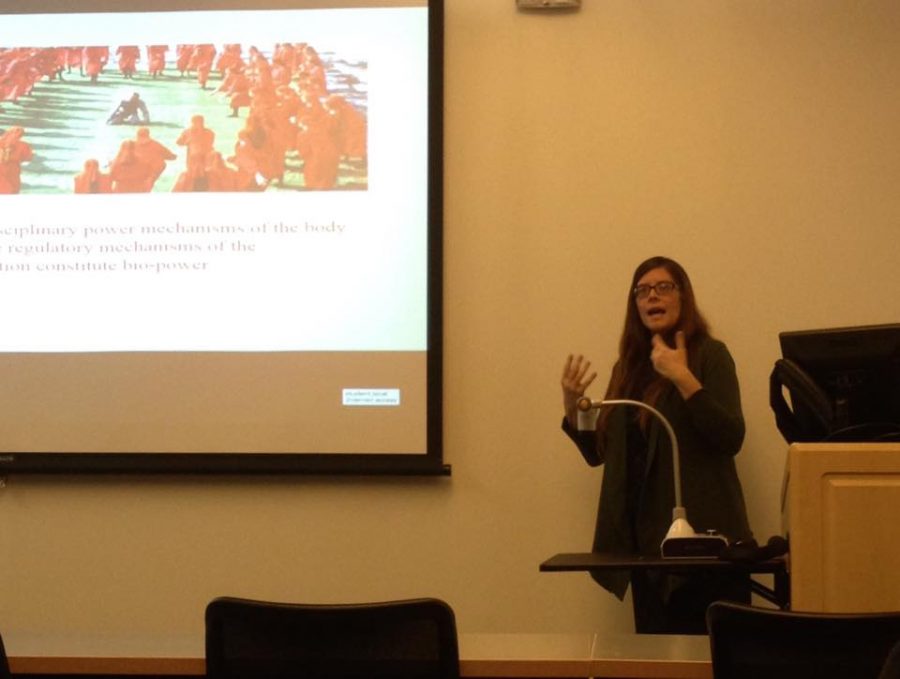Marywood partners with Scranton Reads for book lecture
Photo credit/ Brooke Williams
Dr. Samantha Christiansen lectures on “The Handmaid’s Tale.”
November 10, 2016
Marywood History Professor and Director of Women’s Studies Dr. Samantha Christiansen partnered with Scranton Reads to present Gender: the State and the Body: A Discussion of Bio-Power in “The Handmaid’s Tale” on Tuesday, Oct. 25.
In “The Handmaid’s Tale,” the main character Offred works as a handmaid in the Republic of Gilead, a state dictated by theocrats who overpowered the original government of the United States.
According to the Scranton Reads summary of the novel, reproduction rates are extremely low, so the government requires handmaids to bear children for the ruling class. Offred serves the Commander and his wife.
The women in the novel have restricted freedom since they are constantly watched by secret police and always accompanied by another handmaid.
Handmaids must also visit the doctor frequently to ensure they have not developed diseases or complications, which Christiansen defines in our society as bio-power.
According to Christiansen, “bio-power is the disciplinary power mechanisms of the body and the regulatory mechanisms of the population,” or how the state regulates physical bodies. She explained that the government mandates typical activities as a way to covertly keep track of humans’ bodies and control the population.
Other examples of bio-power in the novel include the government controlling the handmaids’ diet, travel and sexual partners.
Christiansen began the discussion by stating how easy it is for the secret police to use violence without punishment. In the book, a woman was wrongfully shot and, after hearing about the incident, one character was furious with the state while another accepted the misfortune for her safety and supported the state.
“You can easily plug this conversation into other situations,” said Christiansen, soon after mentioning police brutality often heard of today.
Furthermore, she told the audience how the state, or government, regulates people without them batting an eye.
She explained how nearly everyone in today’s society is expected to attend mandatory medical check-ups, even without an illness, for the state to confirm that people’s bodies are up to their standards.
“It seems reasonable, but it is actually far-fetched,” said Christiansen.
Another major power concern in “The Handmaid’s Tale” is women taking their master’s name.
Christiansen pointed out how in the book, it seemed unbelievable because it would be odd for people today to be recognized by their husband’s name; the character Offred’s name literally breaks down to ‘Of Fred.’ However, women today take their husband’s last name upon marriage because it is the normal thing to do: just like in the story.
Elizabeth Davis, co-chair for Scranton Reads, concluded, “The book is described as speculative, not so much dystopian. Speculative being that this could potentially happen given the right set of circumstances.”
Brooke Williams contributed to this report.
Contact the writer: [email protected]





